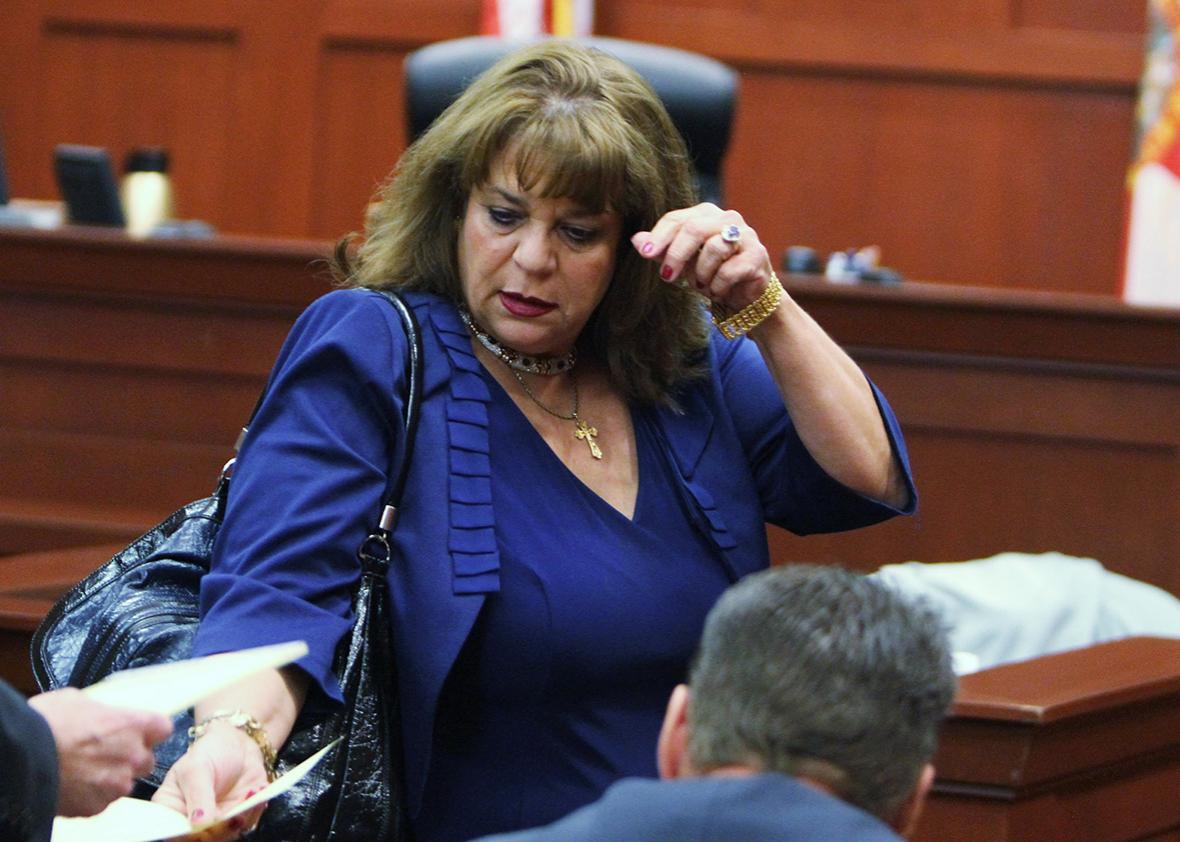The defeat of an infamously bloodthirsty prosecutor in Florida in an election Tuesday has been hailed as a victory for criminal justice reform, with academics, defense attorneys, and even the entertainer John Legend testifying to its significance in the fight for a more humane legal system. Indeed, voters in the state’s 4th Judicial Circuit, which includes Jacksonville, were unequivocal in their rejection of State Attorney Angela Corey, who was blown out of the Republican primary race by her challenger, Melissa Nelson, by a whopping 38 percentage points.
There are good reasons for people who believe in a less punitive, more equitable criminal justice system to cheer Corey’s loss. As the Nation put it in its cover story on Corey last month, she might be “the cruelest prosecutor in America”—a public servant best known for enthusiastically charging a 12-year-old boy as an adult for killing his half-brother and for pursuing a 60-year prison sentence for a woman who’d fired a gun at a wall during a fight with her abusive husband. Corey’s other claims to fame: sending more people to death row than any other prosecutor in Florida and failing to secure a conviction for George Zimmerman in the killing of Trayvon Martin.
So, yes: good riddance. But before this election gets conclusively marked down as a repudiation of the “tough on crime” mentality that gave rise to mass incarceration, it’s worth taking a look at Nelson, the candidate who defeated Corey, and the kind of campaign she ran.
Based on the coverage of Corey’s loss, I had assumed that Nelson—a lawyer who had spent 12 years working in the state attorney’s office—was a reformer who disapproved of her opponent on the grounds that she was too vengeful and needlessly harsh in her treatment of criminal defendants. So I was surprised at the first words I heard from Nelson’s spokesman, Brian Hughes, when I asked him why his candidate had won: “The thing nobody should read into it,” he said, “is that this was some success of the left.”
I was similarly surprised to visit Nelson’s campaign website and see the first words that flashed on the screen: “tough prosecutor,” “tough on crime,” and “endorsed by the NRA.”
These are not the proclamations of a crusading criminal justice reformer. While it’s true that Nelson’s brief campaign was centered on a call for change, and included the occasional comment about making the system more “fair,” the candidate’s central message was not about, say, ending mass incarceration, or reducing the number of people doing prison time for drug crimes, or making the plea bargaining system more transparent and less coercive. The truth is Nelson ran a pretty conventional prosecutor’s campaign, criticizing her opponent’s integrity and judgment, while repeatedly emphasizing her own unforgiving stance on crime. As she put it in a debate earlier this month, she wanted voters to judge her on her record of prosecuting “drug traffickers, robbers, rapists, and murderers.”
“Even though our opponent, Angela Corey, tried to make Melissa seem like the second coming of Bernie Sanders,” Hughes told me, “the reality is she is a conservative Republican.”
Nelson was indeed attacked throughout the campaign as too soft and too liberal, largely on the basis that she waived the death penalty in a murder case in 2004, only to have the defendant kill again while serving his sentence in prison. So it’s possible that Nelson really does have reformist impulses but that her campaign has made the calculation that appearing too sympathetic toward people who commit crime would hurt her standing with Florida voters. To that point, Hughes said something when I interviewed him that made me think maybe Nelson could be considered a member of the so-called right on crime movement—a conservative coalition that believes in reducing the prison population primarily for fiscal reasons.
“Criminal justice reform is becoming an area where conservative legal experts are really leading the way,” Hughes said. “One reason is fiscal responsibility, and the fact that the longer we stay on the path we’re on, the more taxpayer money it’s going to take to keep the criminal justice system going.”
He indicated that Nelson has thought about this problem, as well as about what she as a prosecutor could do to help solve it: “What Melissa would explain … is that the law allows prosecutors a great deal of discretion. Angela Corey would not avail herself of many of those discretionary methods and that was bad for taxpayers.” The implication here is that Corey used her prosecutorial powers to send too many people to prison and that Nelson would not make the same mistake. It was a weird thing to hear from a spokesman for a Republican prosecutor: a dog whistle to the left?
Maybe there is reason to be optimistic about Nelson’s time in office. Nevertheless, any attempt to frame Corey’s loss as proof that the American people have finally realized the folly of electing tough prosecutors should include a caveat: The Nelson campaign clearly believed that running openly and emphatically on a reform platform would not have been a winning strategy for her. Maybe times are changing. But you wouldn’t know it from this particular race.
